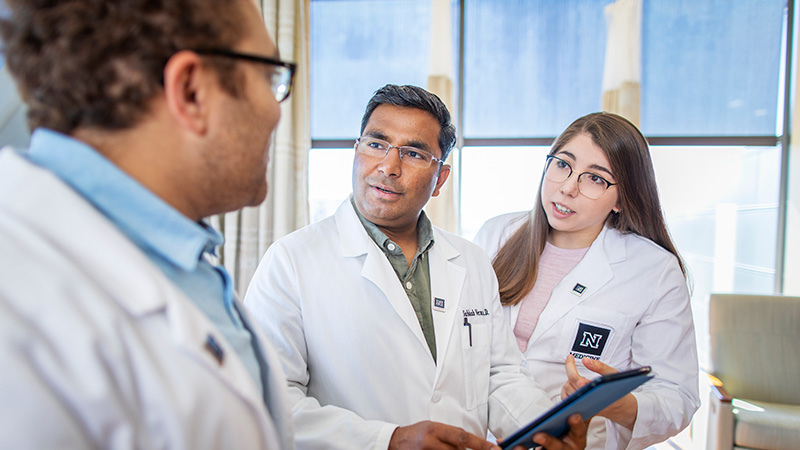Hospice and Palliative Fellowship

The University of Nevada, Reno, Hospice and Palliative Medicine Fellowship Program provides a rigorous and interdisciplinary training experience for the aspiring practitioner. The Fellowship trains physicians in the ways of Palliative Care, which primarily are the provision of goal concordant care, and the amelioration of burdensome symptoms encountered in life limiting illness.
Our program was established in 2008 and has full ACGME accreditation. This is a small and close-knit Fellowship with strong faculty support. The Fellowship is committed to diversity in training and education. Our Fellows have come from varied career paths including new graduates, mid-career and multi-career physicians, internists, family practitioners, emergency medicine, neurologists, physiatrists, anesthesiologists, M.D.s and D.O.s. We accept up to three Fellows per year.
The Hospice and Palliative Medicine Fellowship Program is designed to further training in the management of factors that contribute to the suffering of the patient and the patient's family through the course of illness. The Fellowship experience includes acquiring the central skills in complex medical decision-making, goal concordant reasonable treatment limitation, and assessment and management of physical, psychosocial, and spiritual distress faced by patients and their families.
Notable Hospice and Palliative Medicine program features, per ACGME requirements, encompass the following:
- High level of expertise in addressing the multidimensional needs of people with life-threatening illnesses, including a practical skill set in symptom management interventions
- High level of expertise in both clinical and non-clinical issues related to advanced illness, the dying process, and bereavement
- Commitment to an interdisciplinary team approach
- Strong focus on the individual and family as the unit of care
Applications to our Hospice and Palliative Medicine Fellowship Program are through the ERAS application.
For questions about the program, please contact Program Coordinator at (775) 432-6395.
Program Structure
The UNR HPM Fellowship is a one year training program almost entirely dedicated to the clinical experience. There are no alternative tracts such as Research or Pediatrics currently offered. Each Fellow will provide palliative and hospice care for adults and children, however if it is Pediatric Palliative Care training you seek you should look to other programs. In addition, Fellows may elect to attend subspecialty clinics focused on palliative care and chronic disease such as COPD, CHF, wound Care, home-based primary care during elective rotations.
Educational Experience
|
Community Living Center (CLC) |
1 month |
|
VA Pain Management |
2 weeks |
|
QI-Scholarly projects &Electives |
1 month |
|
Home Based Primary Care |
1 month |
|
Outpatient Palliative Care Clinic |
One ½ days per week throughout academic year |
|
Renown Medical Center |
|
|
HPM Consult Service |
2 month |
|
Medical and Radiation Oncology |
1 month |
|
Pediatric Oncology |
2 weeks |
|
Home Hospice Rotation |
1 month |
There are 12 one-month blocks of rotations for Fellows at clinical sites which include inpatient, outpatient and nursing facility experience relevant to hospice and palliative medicine education. Rotations include administrative, clinical care, quality improvement, team care planning and house staff teaching duties. Fellows work with nurse practitioners, pharmacist, psychologist, social workers, rehab staff, chaplains, nutritionist and nurses on care planning and case management as part of an interdisciplinary team.
Didactic sessions are also provided by and for Fellows through the following: live presentations, journal club, webcasts and online-based educational sessions. Didactics are designed to fit different learning styles from those who are self-directed to those needing more formal lectures.
The Fellowship program offers frequent close mentoring and collaborative opportunities for academic growth with HPM faculty.